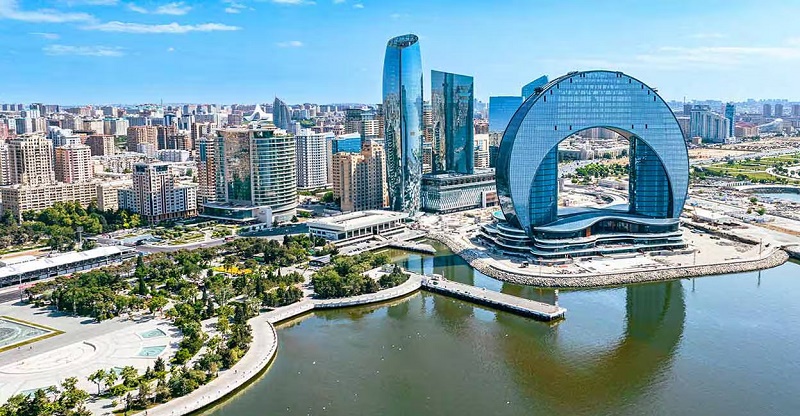Republican Presidents have pulled the US out of global climate cooperation before, and climate action continued to accelerate. Climate impacts have accelerated disastrously too, demanding greater global action. The task at hand is for the rest of the world to show the value of multilateral climate cooperation

So, what does the Trump win mean for the COP29 UN climate summit, which starts on 11 November in Baku, Azerbaijan?
In one sense, very little. US Presidential handovers mean that Donald Trump will only take office in 2025. The Biden administration will run the COP29 talks for the US.
In another sense, a lot. It’s very clear the incoming Presidency will loom large over talks in Baku. Trump is a proud climate denier who famously called it a “Chinese hoax” and has long lauded fossil fuels.
First, history is instructive. Countries largely stuck to their plans in 2001 when Bush quit Kyoto and 2016 when Trump quit Paris. The vast majority of governments recognise climate change as the threat it is.
Ironically it was under the first Trump Presidency that clean energy investments started to outpace fossil fuels. Eight years on finance flowing into wind, solar is double that of oil, gas and coal.
Second, COP29 will crack on. Envoys from nearly 100 countries are already in Azerbaijan preparing for the talks. The summit will open next week. It is business as usual.
It’s also a vital meeting. Nearly 200 governments need to work out how to meet a new finance target to help poorer, vulnerable nations make the transition off fossil fuels and invest in climate resilience.
If the finance does not flow, we can expect the next round of national climate plans from developing countries – due in 2025 – to be impacted as a result.
We know a Trump White House is likely to baulk at any new climate finance commitments and may well refuse to pay up on what the US already owes.
That’s a problem but it’s not insurmountable. A finance deal won’t only hinge on the US, which has long been a laggard under Republican and Democrat administrations alike.
Other countries need to step up. That was true before and it’s true now.
Yes, it’s likely Trump will signal he again plans to withdraw from Paris. We saw this last time round – and when it happened the international response was to overwhelmingly reaffirm commitments to the deal.
There’s speculation Trump could go further this time and leave the entire UNFCCC. That’s likely to be challenged in court, possibly taking years to resolve. Cities, states, and businesses across the US remain committed to the national climate target. Analysis shows that even without federal support, continued, high-ambition actions from non-federal actors can achieve more than 48% emissions reductions by 2035.
The key message here is we have been here before and broadly speaking we can expect the same response.
In recent weeks we have seen the EU, UK, most of the G7, G20, Brazil, the Commonwealth and others restating their continued commitment to climate action. Brazil’s President Lula who will host the next UN climate talks, COP30, is clear that “multilateralism is the only way to overcome the climate emergency.”
Ultimately, when you scrape away the rhetoric and social media fuzz there are two truths.
One – climate impacts are getting worse and are materially impacting all countries, killing people and wrecking economies. Leaders in China, India, the EU and across Africa, Latin America and Asia know this.
Two – investments in clean energy – our key route away from the fossil fuels which have caused this crisis – have accelerated since Trump first took office. Now is not the time to panic. Keep calm and carry on.
